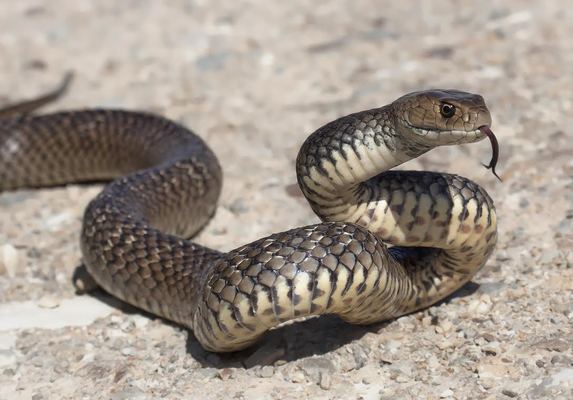With summer on the way, pet owners are being warned not to let their dogs or cats become one of the estimated thousands of snakebite statistics recorded in Australia each year.
Dr Mark Davis says although the start of spring has been mild, there have already been a number of cases of snakebite treated at the University of Melbourne U-Vet Hospital in Werribee.
There has also been a number of snakebite cases treated at U-Vet Geelong Animal Emergency.
“Snake bites are becoming more common as we increasingly have housing encroach on their natural habitat,” Dr Davis said.
The University of Melbourne U-Vet Werribee Animal Hospital sees an average of 50 to 75 cases each snake season, U-Vet Geelong Animal Emergency sees between 10 to 20 cases per year, with dogs and cats bitten in equal numbers.
Snakebite remains a huge problem for Australians and their beloved pets.
Leading toxicologist Ken Winkel, also with the University of Melbourne, agrees snakebites are becoming more prevalent.
“It’s an enduring problem – even in urban areas,” he said.
“The idea that you can’t get an urban life-threatening snakebite is, simply, incorrect.”
Symptoms to look for if you suspect your pet has been bitten are:
· Vomiting
· Sudden weakness or collapse
· Seizures
· Dilated pupils
· Blood in the urine
· Rapid, shallow breathing
What to do:
· Seek emergency assistance immediately
· Keep pet as still as possible
· Do not try to locate or kill the snake
Preventative measures:
· Clear backyards of tall grass and rubbish piles
· Take care walking pets near waterways or bushy areas
· Keep pets indoors at dusk and at night if possible
Enquiries U Vet, 102 Fyans Street, Geelong, phone 5222 2139.
Snake danger on the rise

Digital Edition
Subscribe
Get an all ACCESS PASS to the News and your Digital Edition with an online subscription
From the archives
17 years ago
20 February, 2009
A company is investigating potential for a wave power plant off the region’s coastline.
Western Australia-based Carnegie Corporation is in talks...








